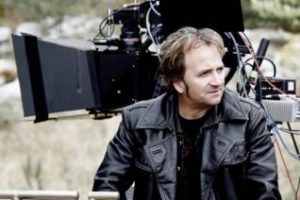
As a child Nowak was enthralled with classic horror movies like Frankenstein and at age thirteen started to make his own shorts on 8mm. Nowak started his career in Vancouver, but has worked on film sets around the world. Here are a few words of wisdom, and some of his thoughts for up and coming filmmakers.
Early Years: Follow your Instinct and Curiosity
“I was about 8 years old when my fascination with movies began. I was obsessed with Frankenstein and other classic horror films and started making my own shorts in 8mm when I was thirteen years old. Soon after, I saw ‘The Tenant’, directed by Roman Polanski, which opened my mind to the dramatic possibilities of visual storytelling. I think the best course I ever took was the History of Movies, where I was exposed to milestones of film from the past and from there I developed a love for international cinema.”
Respecting the Past, Collaboration and Building Mood
“The art of cinematography really is to me the total culmination of centuries of the very best of visual arts. You know that Michelangelo and Goya would have been cinematographers.”
Collaboration and Looking Through the Lens
“To reproduce a certain version of reality though a lens is still thrilling, and when you’re lucky enough to work with an inventive director as storyteller, the possibilities are endless. Making a movie is a huge endeavor- expensive and intensive- so it’s an honour to be in a position where one can exercise such creativity with the help of a talented crew.”
Balancing light levels on the set of War, as Jet Li rehearses.
Building Mood
“The tools and techniques available to help capture the scene allow you to mould and sculpt the image to suit the particular story: focal length, depth of field, composition, camera movement, and especially lighting for mood are all mechanisms to help you build the emotion into your scene.”
The Demo Reel
“I’ve been lucky enough to have shot a good cross section of genres in my career, and I try to reflect that when I put together my own demo reel.”
How to Pick a Project
“I love going from a suspense thriller to a western to a romantic comedy to an action film. I’d never turn down a project if it had a good script and a courageous director.”
Storytelling is the Key
“The first question from new film students often is “what cameras are we using?” I’d respond with the applicable equipment to be employed for that time period. But I would also remind them that cinematography is so much more than just the tools of our trade; it’s learning how to tell a story visually, manipulating time and space, light and shadow, and exploring character and subtext.”
Understanding Narrative and Progression is Essential
“Young shooters have a wealth of resources these days to study the work of brilliant filmmakers over the last century. It’s this understanding of narrative and the progression of imagery that is most interesting and rewarding to me, and it’s my hope to share this aesthetic with the students.”
Get Out There and Shoot…Do the Work
“My advice to those who are at the beginning of their career is this: don’t expect to play the piano without practicing. Accordingly, in film, shoot anything and everything. Even if the project may not give you beauty shots for your reel, you’ll be meeting directors, producers, ADs, colourists, editors and so many other enthusiastic people just like yourself. It’s a great community to be a part of, and the opportunities come when you’re an active participant.”
Why InFocus Film School
“In Focus has grown rapidly from the new school on the block to a significant facility where students can experiment with all aspects of filmmaking until they decide what discipline they want to pursue. The instructors are professionals and the atmosphere is friendly.”
Being a successful cinematographer is so much more than having the newest or best gear. Great cinematographers are storytellers who strive to reveal the human condition though a lens and back to the audience. A painter with a brush uses colour, light and shadow to evoke beauty, or fear; cinematographers use cameras to create moving visual scenes using shadow and light in the same way.
Learn more about cinematography and filmmaking in our 6-month Foundation Film Program, or 10-month Film Production Program.